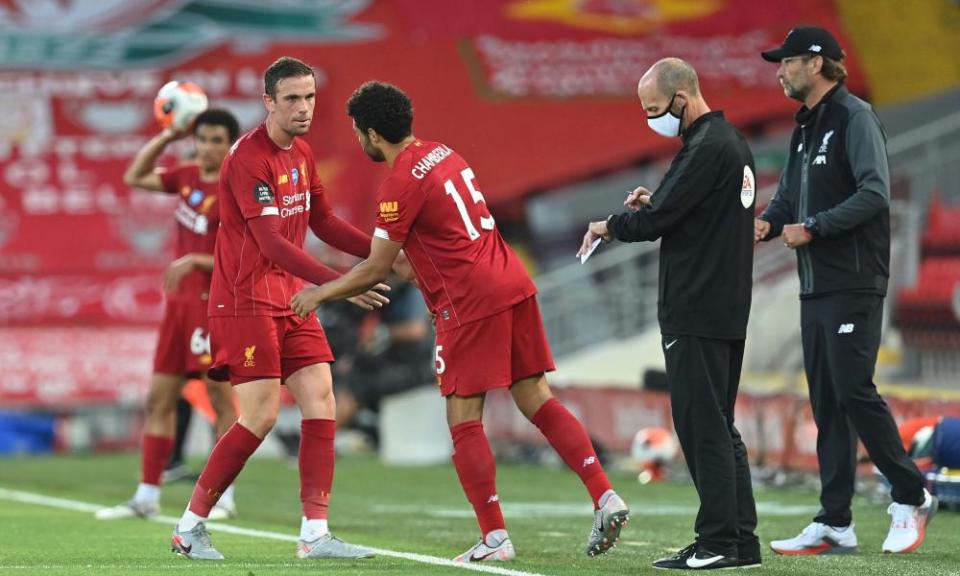Premier League's top clubs make second push for five substitutions

The Premier League is split over the use of five substitutes for the coming season with the big clubs pushing for the rule to be implemented at Thursday’s shareholder meeting and the smaller ones digging in against it.
The matter was voted on at the last meeting on 6 August when it was proposed by the league’s board and defeated by 11 votes to nine. If new legislation is to be passed, it requires a two-thirds majority – in other words, 14 votes in favour.
Related: Premier League 2020-21 preview No 5: Chelsea
The nine clubs that wanted five substitutes rather than the traditional three included Liverpool, Manchester City, Manchester United, Chelsea, Tottenham and Arsenal. There was also a vote on whether to persist with nine players on the substitutes’ bench rather than seven, with 10 votes in favour and 10 against.
The rule to permit five substitutes and larger match-day squads was introduced when the league restarted in mid-June to allow clubs to better cope with the high number of matches in a relatively short space of time – and after a three-month hiatus because of Covid-19.
It was proposed by Chelsea and driven by the big clubs and those same clubs – disappointed that the vote went against them last month – are driving it again. They have put the item back on the agenda for Thursday and there will be a second vote on it. Any club can propose rule amendments at any time.
It is understood that some of the big clubs have attempted to lobby the smaller ones over recent days into changing their votes in order to get the required swing. Yet there is anger among the smaller clubs, who believe that they would be at a competitive disadvantage were five substitutes and nine players on the bench to become a feature of the season.
They argue that the big clubs already have the luxury of being able to rotate their starting players because of the higher quality in their ranks and it would be too much if they were also permitted greater flexibility within games. Moreover, they wonder what kind of precedent it would set if the big clubs got a decision they did not like but were able to eventually get the outcome they wanted.
The clubs will discuss the latest on broadcast arrangements, with one concern being that while fans are not allowed inside stadiums they will illegally stream matches not on TV.
At the previous shareholders’ meeting the Premier League’s chief executive Richard Masters ruled out clubs being able to stream matches to their supporters, saying it would affect the integrity of the broadcast deal and potentially hinder efforts to get crowds back into stadiums.
Another item on the agenda will be curtailment scenarios to determine final league positions in the event that the competition has to be suspended because of the coronavirus. A working group was set up after the last meeting, when these issues were discussed, and it is set to make a presentation.

 Yahoo Sport
Yahoo Sport 





































